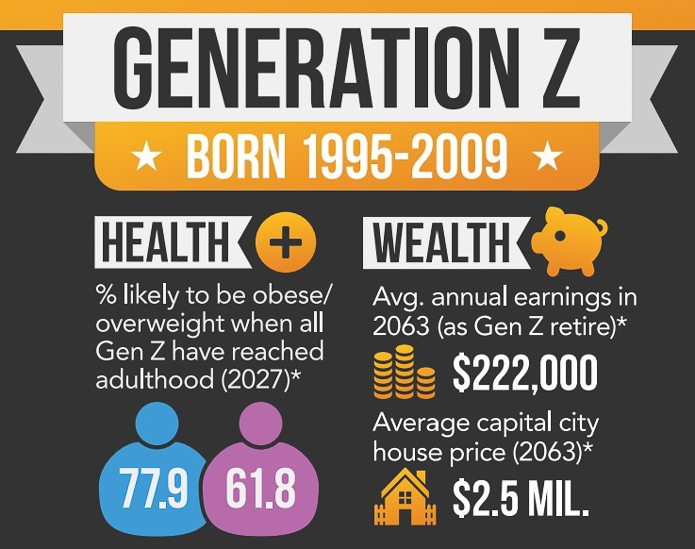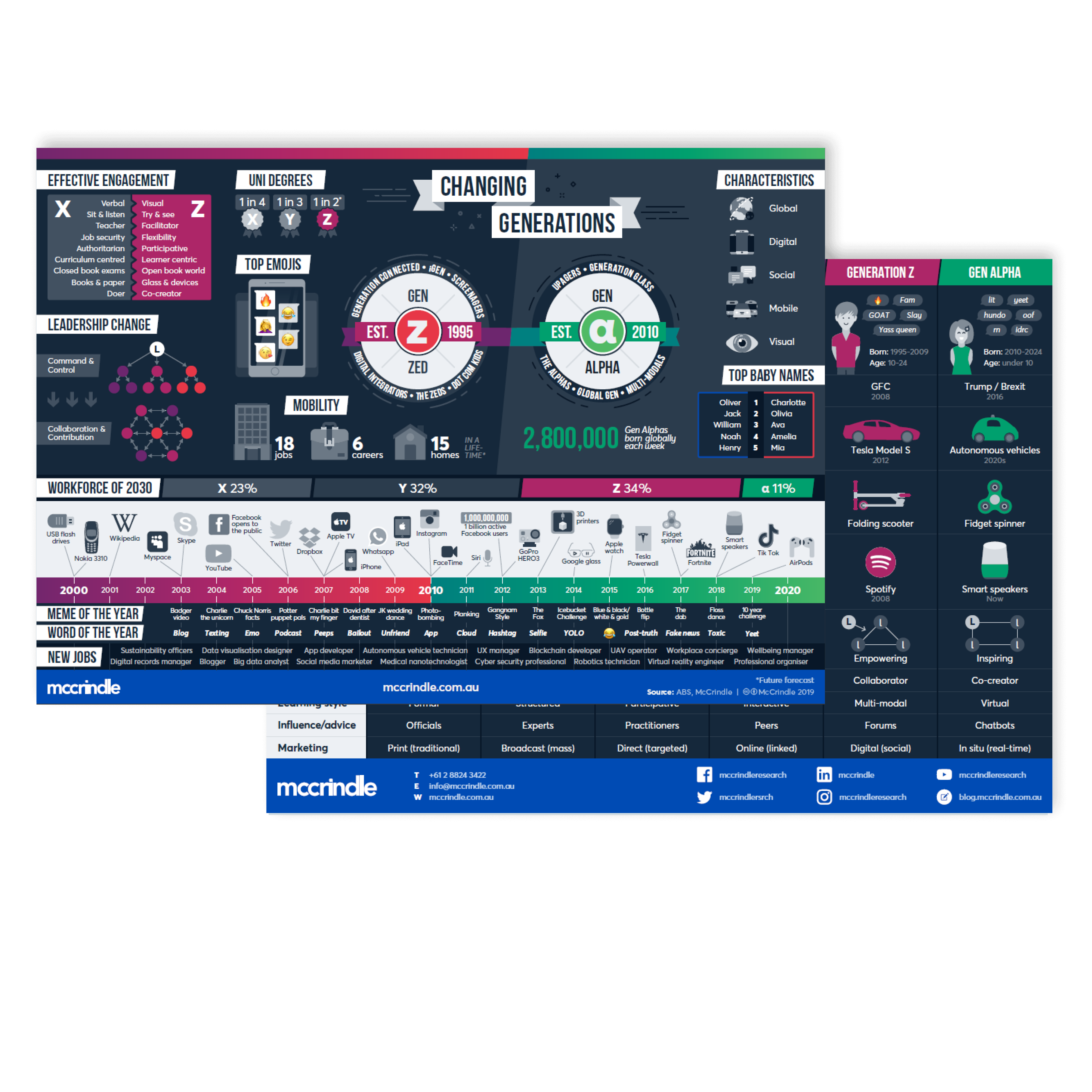Generation Z: Living Longer, Costing More

 It has often been said that today’s young people will be the first generation of children who won’t live as long as their parents because of the rise in childhood obesity, increased “screen-time”, sedentary lifestyles and the increased intake of high fat and sugar foods.
It has often been said that today’s young people will be the first generation of children who won’t live as long as their parents because of the rise in childhood obesity, increased “screen-time”, sedentary lifestyles and the increased intake of high fat and sugar foods.
It is true that young Australians regularly eat fast food more than the average Australian, obesity rates have risen significantly in a generation, and based on current trends almost 3 in 4 Generation Z will be overweight or obese by the time they reach adulthood. Additionally young Australians consume more screen time than ever before – on average this total screen time exceeds 10 hours per day.
However, the proportion of Australians with long term health conditions and lifestyle risk factors such as smoking has declined significantly over the last decade and the survivability of morbid illnesses continues to rise. Australians are not only amongst the longest-living in the world, they have seen life expectancy increase continuously for more than a century. A boy born in Australia today can expect to live to 80 years, while a girl can expect to live to 84. Having survived to age 60, men can expect to live another 23 years and women another 26 years. Australians have added 10 years of life expectancy in the last 40 years and this longevity increase is still continuing.
This remarkable increase in life expectancy is the product of public health measures, medical improvements, pharmaceutical advancements, and astonishing increases in survivability rates across all age groups. For example, in 1990, the mortality rate for children this age was 0.4 deaths per 1,000 yet it has since declined by more than half! Regardless of youth trends concerning sedentary lifestyles and higher calorie intake, Generation Z will on average outlive their parents, as has been the case with every Australian generation since record keeping began.
Discover this emerging generation at GenerationZ.com.au and see our latest infographic for the stats.




